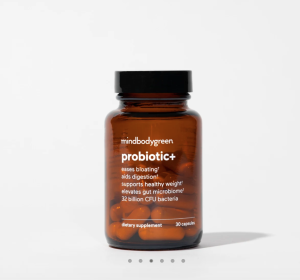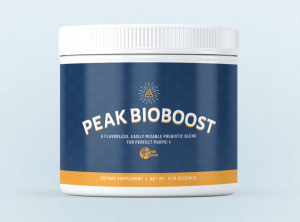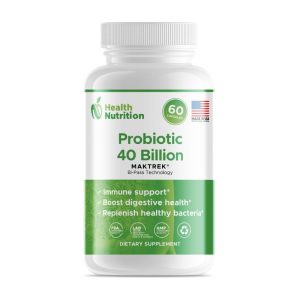Table of Contents
ToggleWhich Probiotic for Acid Reflux is Right for Me?
There are many different types of probiotics for Acid Reflux on the market these days. So, how do you know which one is right for you? Here are a few things to consider when choosing a probiotic:
• What are your health goals? Probiotics can help with various health conditions, from digestive issues to immunity to skin health. Choose a probiotic that contains strains that target your specific health goal.
• What is your budget? Probiotics can range in price from $10-$50. Consider how much you are willing to spend on a probiotic supplement.
• What is the quality of the probiotic? Make sure to choose a probiotic that is manufactured by a reputable company and that contains live, active cultures.
• What is the shelf life of the probiotic? Probiotics are live cultures, so they will eventually die off. Choose a probiotic with a longer shelf life so you can get the most benefit from it.
Now that you know what to look for in a probiotic, here are a few of our favorite brands:
1. Clear Gut & Immunity:
Clear Gut & Immunity is a remarkable product that can positively impact your overall well-being.
It combines a potent 20B CFU probiotic blend with medicinal mushrooms and herbal supplements to balance your gut microbiome, boost your immune system, and soothe acid reflux and GERD.
With proven ingredients like L. rhamnosus, B. longum, Reishi mushroom, and Slippery Elm Bark, Clear Gut & Immunity offers a holistic solution to enhance overall well-being.
Don’t wait – start your journey to better gut health, improved immunity, and acid reflux relief with Clear Gut & Immunity today!
2. Mindbodygreen’s Probiotic+:
Probiotic+ is a must-try if you’re looking to supercharge your gut health and positively impact GERD symptoms.
With its proven clinical benefits and an impressive lineup of beneficial microbes, it’s become my daily go-to.
This probiotic contains 32 billion. It is also non-GMO and free from dairy, gluten, soy, and artificial ingredients.
What I love most is that Probiotic+ keeps it simple with clean ingredients and no unnecessary additives. It’s a trustworthy product from the folks at mindbodygreen.
3. Peak BioBoost:
This revolutionary product is a game-changer for digestive health, and it’s also your secret weapon against acid reflux.
Peak BioBoost accelerates stool speed, ensuring you enjoy frequent, predictable, and gentle bowel movements.
No more waiting and discomfort – it gets things moving smoothly and efficiently.
It is also dairy-free, gluten-free and vegetarian.
4. Probiotic 40 Billion:
This probiotic contains 40 billion CFUs and naturally replenishes healthy bacteria. It also contains natural ingredients to boost digestive health and help with GERD.
It supports gut health, and maintains a balanced flora, and I appreciate its natural approach.
Remember to follow the dosage and consult your healthcare provider. In conclusion, it’s an essential addition to my routine, promoting overall health and providing relief from GERD.
Highly recommended!
Probiotics are a great way to support your overall health, so choose the one that is right for you and start reaping the benefits!
Can I Take Probiotics After My Stomach Surgery?
Yes, you can take probiotics after your stomach surgery.
In fact, probiotics can be helpful in restoring the healthy bacteria in your gut after surgery.
Probiotics are live microorganisms that can provide health benefits when taken in adequate amounts.
They can be found in certain foods or in supplements. The most common types of probiotics are Lactobacillus and Bifidobacterium.
It is important to talk to your doctor before taking probiotics, especially if you have a medical condition.
If you decide to take probiotics, it is important to choose a high-quality product.
How Do I Know What Dosage of Probiotics to Take?
When it comes to probiotics, there is no one-size-fits-all answer.
The right dosage for you may vary depending on your age, health, and dietary needs.
That said, most experts agree that taking a daily probiotic supplement is a good place to start.
A general dose of 10-20 billion CFUs (colony-forming units) per day is a good place to start, although some people may need more or less depending on their individual needs.
For example, if you are taking probiotics for gut health, you may need a higher dose to see results.
On the other hand, if you are taking probiotics for general wellness, a lower dose may be all you need.
If you are unsure of what dosage to take, it is always best to consult with a healthcare professional.
They can help you determine the best probiotic supplement and dosage for your individual needs.
When Should I Not Take Probiotics for Acid Reflux?
- 1. When you’re sick
If you’re already sick, your body is working hard to fight off the infection. Taking probiotics at this time can actually do more harm than good.
That’s because they can compete with the beneficial bacteria already in your gut, potentially making your infection worse.
- 2. When you’re taking antibiotics
Antibiotics are designed to kill bacteria, both good and bad. So if you’re taking them, it’s best to avoid probiotics until you’ve finished your course of antibiotics.
Otherwise, you may end up reducing the effectiveness of the antibiotics.
- 3. When you have a gastrointestinal disorder
If you have a gastrointestinal disorder such as Crohn’s disease or ulcerative colitis, probiotics may not be right for you.
That’s because they can actually aggravate these conditions. If you have a gastrointestinal disorder, it’s best to talk to your doctor before taking probiotics.
- 4. When you’re pregnant or breast-feeding
If you’re pregnant or breastfeeding, it’s best to avoid probiotics unless your doctor specifically recommends them.
That’s because there’s not enough research to know if they’re safe for pregnant and breast-feeding women.
What if I Experience No Benefits from Taking Probiotics?
It’s possible that you’re not taking the right probiotic for your needs, or that you need to give it some time to work.
It’s important to remember that not all probiotics are created equal.
Different probiotics contain different strains of bacteria, and each strain can have different effects on the body.
Also, our gut already contains a variety of bacteria, so you may not see any benefits from taking probiotics if your gut microbiome is already healthy.
It’s also possible that you simply need to give probiotics more time to work.
Probiotics are live bacteria, and it can take time for them to establish themselves in your gut.
Some people may start to see benefits after a few weeks, while others may not see any benefits until they’ve been taking probiotics for several months.
If you’re not seeing any benefits from taking probiotics, talk to your doctor or a registered dietitian.
They can help you figure out whether you need to switch to a different probiotic or take a different approach.
Are Probiotics Safe During Pregnancy?
With all of the changes that occur during pregnancy, it’s natural to want to take steps to ensure that you and your baby are as healthy as possible.
While probiotics are generally considered safe, there is some concern that they could cause problems for pregnant women.
One of the main concerns with taking probiotics for acid reflux during pregnancy is that they could cause infections.
There is some evidence that probiotics may help to prevent or treat infections, but there is also the potential for them to cause infections.
Another concern with taking probiotics during pregnancy is that they could interfere with the development of the baby’s immune system.
This could lead to problems later on in life, so it’s important to talk to your healthcare provider about the potential risks and benefits of taking probiotics during pregnancy.
If you’re considering taking probiotics during pregnancy, talk to your healthcare provider about the potential risks and benefits.
Will Probiotics Help Prevent Ulcers?
There is still much research to be done in order to say for certain whether or not probiotics can help prevent ulcers.
However, there is some evidence to suggest that probiotics may be helpful in this regard.
One study found that probiotic supplementation helped to prevent the recurrence of ulcers in those who had previously been treated for the condition.
The probiotic used in this study was Lactobacillus reuteri, and it was found to be particularly effective.
So, while more research is needed, there is some evidence to suggest that probiotics may help to prevent ulcers.













